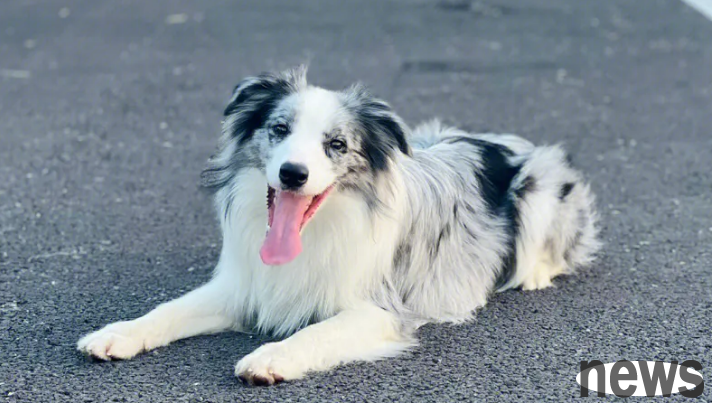What are the blood types of dogs and what should you pay attention to when transfusions of dogs
Everyone is familiar with the four blood types of human beings, A, B, AB, and O, and there is also the distinction between negative and positive, but do you know what these letters represent? In fact, the basis for distinguishing blood types is the most important antigen in blood cells (proteins and sugars produced by the human immune system on the surface of blood cells). The most amazing one is type O blood, which means that there is no antigen in your cell, which is why type O blood is the universal blood type that will not develop resistance to other blood types.
What are the blood types of dogs?
There is also such a magical universal blood type DEA4 in the dog's blood. Most of the dog breeds with this type of blood are greyhounds, so greyhounds are often used as blood-supplying dogs abroad. Including DEA4, there are eight most common dog blood types that are certified internationally, and they are divided into negative and positive, just like humans.

What happens if a dog is transported with different types of blood?
On Weibo, owners often seek help from everyone because their dog is injured, hoping to find a dog of the same breed for blood transfusions to help their dog survive the sadness. But in fact, dogs cannot accept antibodies of different blood types from their own. After the first blood type is imported, blood type may change. If blood transfusion is required for the second time, it will become very difficult because the probability of finding a suitable blood source will become very small.
"The most serious case should be the mixture of negative blood and positive blood. When a dog with DEA1.1 negative blood inputs DEA1.1 positive blood, the immune system will take a long time to react in the first case, so there will not be too much reaction. However, when the second time encounters a mismatched blood transfusion, the dog with DEA1.1 negative blood will have a strong discomfort reaction, and even this reaction will be life-threatening.
Blood Transfusion Combination Figure
Note: Cases that usually require blood transfusions of dogs include vomiting caused by mistaken ingestion, sudden bleeding (most common in car accidents), large amounts of blood loss caused by surgical accidents, parasites, etc., which are mostly sudden accidents, so it is best to test the dog's blood type while having a physical examination in case of emergency.
Can dogs of different blood types breed babies?
In fact, this probability is relatively low, but to be on the safe side, it is best to understand the blood type of the other dog when choosing a breeding object. If a female dog with DEA1.1 negative blood gave birth to 7 puppies, 2 of which were inconsistent with the female dog's blood type. If you survive, the newborn will also die of hemolysis during breastfeeding (usually about a week). Because the milk of a female dog contains the same antibodies as blood, puppies with inconsistent blood types will be attacked.

What should I pay attention to if I want to take my dog to donate blood?
· Large dogs of about 50 kilograms are usually preferred;
· Female dogs that have been spayed or have never been bred;
· Dogs that have been donated must be free of any diseases and parasites and are in good health before donating blood;
· Age between 1 and 8 years old;
· Vaccination is complete and vaccinated regularly;
· Never taken any medication;
Note: How much blood is drawn is determined by the doctor after evaluating the dog's health and body size~
Dogs that meet the above conditions can donate blood 4 times a year (up to 1). Of course, parents also need to take their dogs to the hospital for a full physical examination regularly to ensure the health of their dogs.




